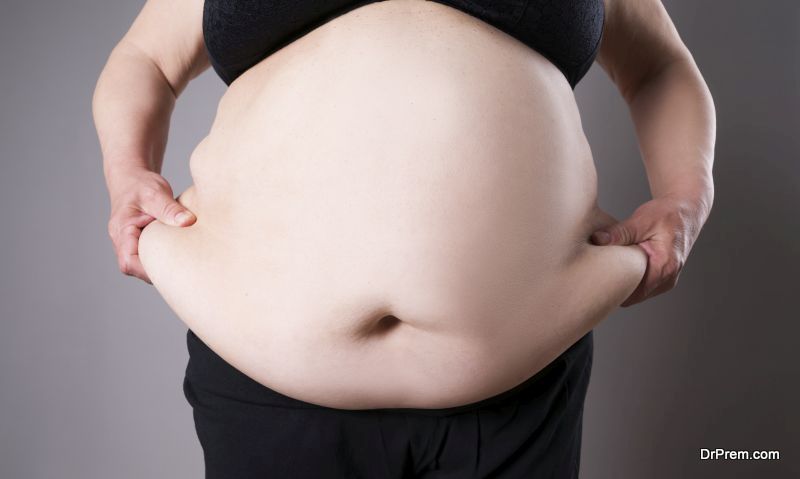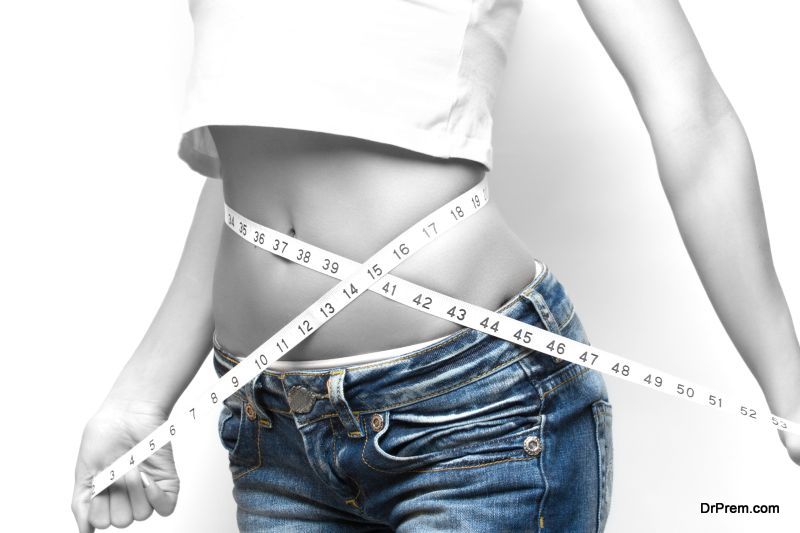With 21.4% of Americans making it their New Year’s resolution to lose weight, it’s no surprise that our country is fascinated with weight loss. Fad diets, detoxes, cleanses, and rigorous workout plans – we’ll try anything to see that number on the scale go down. But with so much information flying around, sometimes it’s hard to decipher the reality from the fiction.
Here are 10 weight loss myths and interesting facts that you may not have known and might change your recent diet approach.
1. You Can Exercise Without Dieting

If you’ve ever spent hours at the gym without seeing weight loss results, you may want to check your diet. Are you eating more calories than you’re burning? The truth is, 75% of weight loss is actually achieved outside of the gym, with a change in diet. Only 25% of weight loss is attributed to exercise.
But it’s also interesting to note that losing weight by just restricting your diet, without participating in any type of physical activity, means you’re not only losing fat but muscle and bone density as well. True weight loss goals include a healthy balance of diet and exercise.
2. Counting Calories is Enough
Not all calories are created equal. If your body is designed to consume between 1,200 and 1,500 calories a day, those calories should be from quality foods like lean meats, vegetables, fruit, and healthy carbs, not from fried foods, pizza, and chips. The number of calories is subjective based on what those calories are comprised of. So don’t focus so much on the calorie count when reading a food label. Some other things to take note of include the amount of fat, sugars, protein, and fiber.
3. Obesity is a Choice

Weight gain has little to do with willpower and all to do with genetics and other contributing factors. People often don’t “choose” to be obese or gain weight. Sure, lifestyle choices play a role in weight gain, but there’s no denying that countless other factors add to the likelihood of weight gain in certain individuals.
A common medical cause of obesity is the body’s resistance to a hormone known as leptin. Leptin is the hormone in our body that signals the brain that it has enough fat stored and to stop eating. Without is nearly this hormone, a person’s brain thinks they’re body is starving. It impossible for someone with a leptin hormone issue to stop themselves from eating. So, try not to assume that weight gain or someone’s obesity is due to a lack of willpower – it might be something much deeper.
4. Appetite Suppressants Aren’t’ Real
If you’re struggling to curve cravings or regulate your body’s hunger signals, there are actually some tips, tricks, and suppressants that can help. Using a smaller plate is a great way to help regulate your eating. The visual of a full plate will make you think twice before going for seconds, no matter the size of the plate. If you feel hungry, try drinking water. A lot of times dehydration is mistaken for hunger. If you drink 8 oz. of water and still feel hungry 20-30 minutes later, than you probably need a snack.
You can use some other, natural products to help with appetite suppression and control also. These include:
- Green Tea Extract
- Essential Oils
- High Fiber Foods
- Spicy Foods
- Saffron Extract
Next time you’re fighting a craving, try one of these natural ingredients to help ward off hunger.
5. Carbs Are Bad for You

Just like calories, not all carbohydrates are created equal. Carbs are an important component to overall weight loss and health. Your body uses carbs for energy and fuel. Carbs are found in not only grain products but also in most fruits. Refined carbs and carbs from sugar can lead to weight gain. But other high-carb foods that can actually aid in weight loss include quinoa, bananas, oats, sweet potatoes, and oranges. Though eliminating carbs completely from your diet can result in weight loss, you can still incorporate beneficial carbs as part of a well-balanced diet.
6. All Fat is Bad Fat
Another myth. You hear the word “fat” and automatically think it must be bad. But that’s just not true! There are countless healthy fats that are actually an important component of many weight loss plans. These include:
- Avocado
- Certain cheese
- Oils (extra-virgin olive, coconut)
- Nuts and nut butters
It’s also interesting to note that even if you consume foods that are high in fat, like those found in junk foods, as long as they’re in moderation and fall into your caloric intake for the day, their consumption alone is not enough to make you “fat”.
7. You Can Never Eat Fast Food

Sure, swinging through the golden arches and grabbing a super sized meal isn’t going to result in weight loss, but that doesn’t mean you can never frequent your favorite fast food joint. You may have heard this before, but everything in moderation is okay! If you are dying for some french fries, allow yourself to indulge in a small order and not all the time. If you’re craving a grilled chicken sandwich, try ordering it without the bun. Swap those fries for yogurt or fruit options. Most fast food restaurants offer salads and other healthier alternatives. You’ll also find the calorie count listed on most food menus. But again, make sure you’re looking at the whole picture when it comes to choosing a snack, not simply the number of calories it contains.
8. You Can’t Eat at Night
Have people told you never to eat past a certain time at night? Some researchers believe that food consumed late at night or too close to bedtime can result in food stored as fat, leading to weight gain. Though it’s not recommended you eat a high-calorie high-fat meal right before hitting the sack, if your body is throwing off hunger signals or you just completed a late night workout, you need to eat! It’s all about what you choose, not necessarily the time you choose to eat it. Stick with high-protein, low-calories snacks that don’t leave you feeling overly-full, which could disrupt your sleep patterns.
9. Cardio Is the Best Exercise for Weight Loss
If you’ve ever heard of someone being a “cardio queen”, it’s because lots of people believe that cardio exercise is the only answer to rapid weight loss. Though intense cardio exercise may result in immediate weight loss, your results will eventually slow and it will be more difficult to sustain over time. Why does this happen? Because often, cardio is a repetitive motion that uses the same muscles over and over again. This means your body becomes accustomed to the workouts more easily, resulting in a plateau.
10. The Scale is the Only Indicator of Weight Loss
It’s difficult not to become fixated on the scale when embarking on a weight loss journey. After all, your goal is to lose pounds. But, there are so many other amazing non-scale victories to focus on during your health journey.
Some people completely transform their bodies, replacing fat with muscle and dropping multiple pant sizes without ever shedding an ounce! In fact, they may actually put on weight as they build muscle. Another important thing to keep in mind is that as you work your muscles, they’re actually experiencing small tears in the fibers. When your body repairs and builds those muscle it tears, it simultaneously retains water. So if you see an increase on your scale, it could be due to water retention as your body builds leaner muscle.
Don’t Lose Sight of Your Goal
It’s easy to get distracted by all the weight loss hype, the myths, and the rumors. By listening to some of these weight loss myths and facts, you can better focus on your ultimate goal. Listen to your body and how it responds to certain exercises and food choices. Remember, everyone is different and what might work for one person may not work for you.
Article Submitted By Community Writer





